Social Determinants of Health New Faculty & Leadership

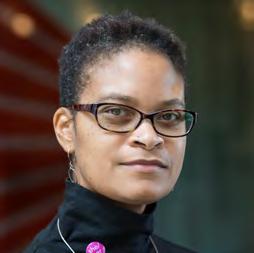
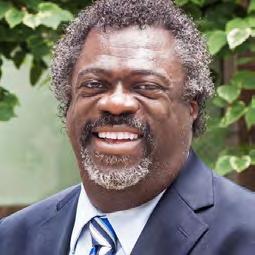
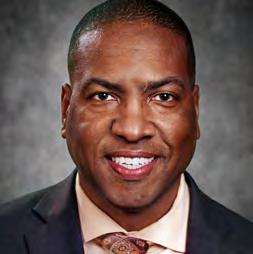


“Despite landmark research around the neurobiological underpinnings of addiction and evidence that addiction is a brain disease, it is entrenched in issues of health equity. Furthermore, historical racialized social and political responses to past substance epidemics have inhibited and continue to inhibit progress. At DUSON, my goal is to identify and eliminate substance related health inequities through high-quality, low barrier nurse-led models of care.”
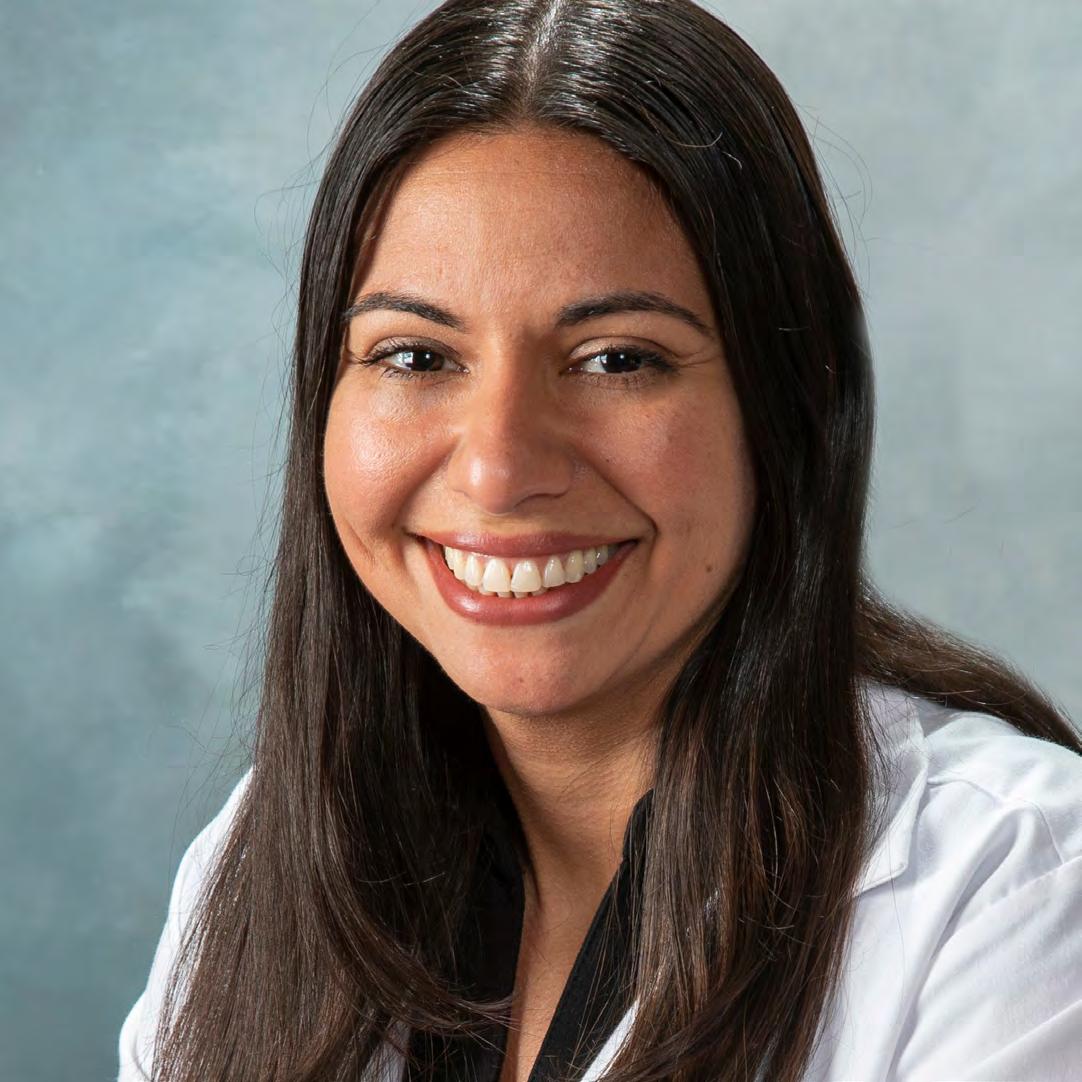
SUBSTANCE USE PREVENTION AND TREATMENT
Marissa Abram
PhD, PMHNP-BC, CARN-AP, FIAAN
Dr. Abram’s research interests broadly focus on the prevention and treatment of substance use disorders including examining the role of nursing, the process of recovery and factors related to the initiation and maintenance of evidence-based treatments such as medications for opioid use disorders.
She has extensive clinical experience in the management and care of patients with substance use disorders and psychiatric disorders. Dr. Abram has served as the principal investigator, co-investigator and consultant on extramural federal grants funded by NIH, SAMHSA and HRSA and has published her work in peer reviewed nursing and health professional journals. Notably, Dr. Abram is a Fellow of the International Academy of Addictions Nursing and the New York Academy of Medicine.
Are there health inequities specific to addiction?
What is unique to addiction when compared to other chronic illness such as diabetes or hypertension is the stigma. This stigma proliferates negative perceptions about persons with addiction and creates barriers to change. Research shows that people with addiction are viewed more negatively than people with physical or other mental disorders. Furthermore, upstream factors like public policies that criminalize addiction, inhibit access to health care or contribute to a lack of parity in treatment for those who can access care further erode health equity in addiction prevention and treatment.
How do you think nurses are well positioned to address harmful social determinants of health and advance health equity?
I can immediately think of three ways! First, nurses have historically advocated for and provided patient centered care through a social justice lens. Second, nurses have focused on promoting the health and well-being of individuals and communities. Finally, the impact of addiction can be felt across the lifespan and disease states—both physical and mental. It can affect maternal and child outcomes, increase risk related to infectious diseases, and worsen non-communicable disease such as hypertension, diabetes, and mental illness. Because nurses provide care across the lifespan (from infancy to the elderly) and across many settings (e.g. hospitals, clinics, homes, schools) we can deliver impactful interventions across ages and proximities. This gives nursing the capacity to address upstream, mid-stream and down-stream social determinants of health that can improve individual, family and community health.
“There is so much potential for nursing to build health equity and provide dynamic leadership to transform our health care system. I am very excited to help advance DUSON’s mission by infusing health equity into the School’s Nurse Anesthesia Program, by shaping the next generation of providers to better understand how to address harmful social determinants of health and by supporting policy and advocacy that increases access to care and health equity for marginalized individuals.”
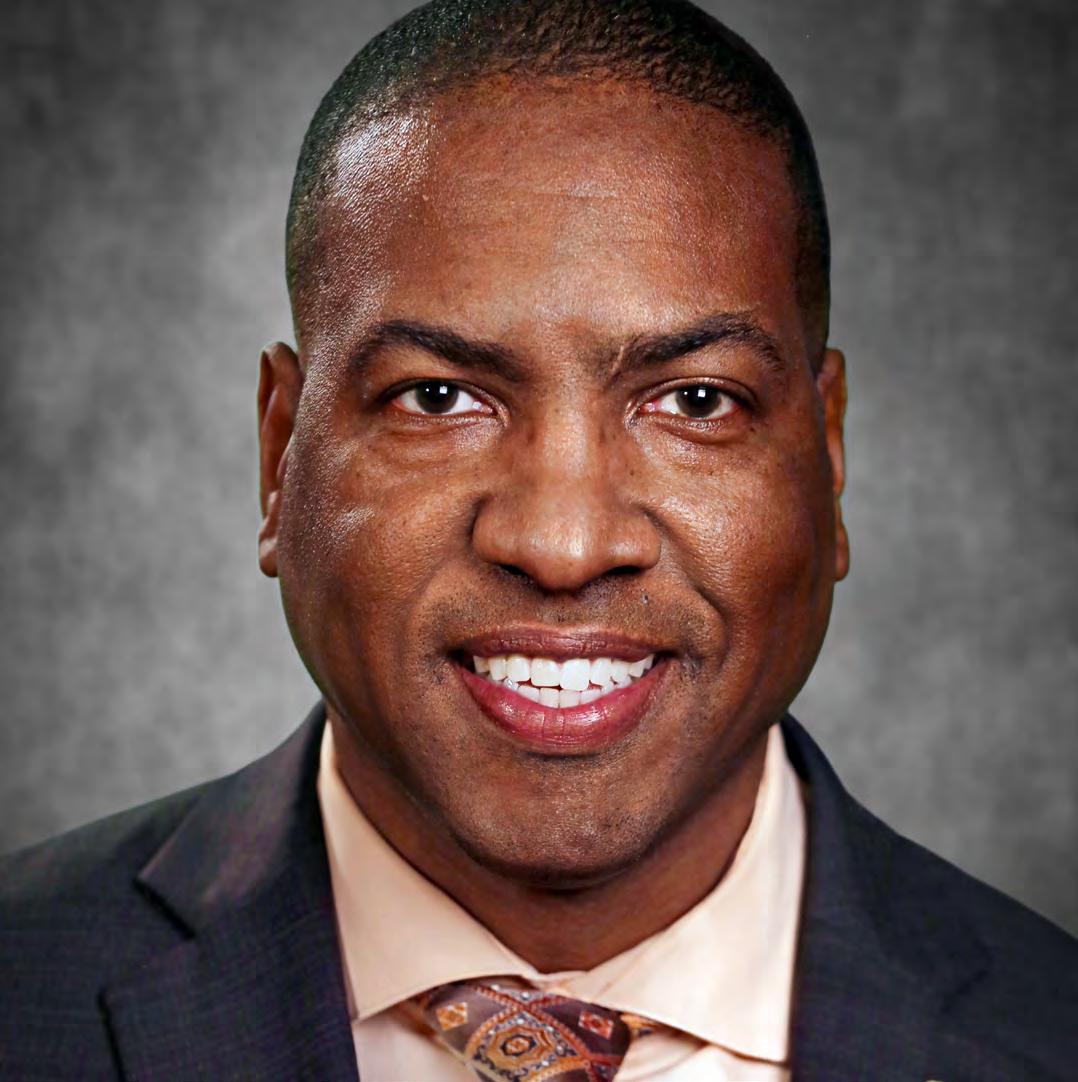
EQUITY IN MEDICATION FOR OPIOID USE DISORDER TREATMENT AND NURSE ANESTHESIOLOGY PRACTICE
Derrick Glymph
PhD, DNAP, CRNA, APRN, COL, USAR, FAANA, FAAN
Dr. Glymph is a Certified Registered Nurse Anesthetist and previously served as Chair of the Department of Nurse Anesthetist Practice at Florida International University.
He was a governor-appointed member of the Florida Board of Nursing for six years, where he successfully led an interdisciplinary statewide effort to improve health policy on the opioid epidemic. Dr. Glymph also has held multiple leadership roles in the military. A Colonel in the United States Army Reserves and Deputy Commander of Nursing for the 7456 Medical Operations Readiness Unit, Dr. Glymph was awarded for his service and pain management expertise during Operation Enduring Freedom in Afghanistan and developed a micro-credential badge for advanced practice healthcare providers on Safe Opioid Prescribing Strategies (S.O.P.S), in which 161 badges have been awarded.
Dr. Glymph has held influential roles in top academic journals and served as Editor-in-Chief for The Florida Nursing Quarterly. As a nurse anesthesiologist, he has served as an Editorial Board Committee Member of the AANA Journal, Journal of Nursing Regulation, Current Reviews for Nurse Anesthetists and was selected to serve on the National Board of Certification and Recertification for Nurse Anesthetist (NBCRNA) Board of Directors to start in October 2023. In 2021, Dr. Glymph became a double fellow. He was inducted as an inaugural fellow into the American Association of Nurse Anesthesiology and also into the American Academy of Nursing.
What motivates you to address health inequities?
Currently in America, there are multiple social determinants of health inequities for marginalized substance use disorder individuals that have led to poor health and social well-being outcomes. At the same time, we are experiencing vast macroeconomic burdens due to the two-decade opioid epidemic. These issues inspire and drive me to create sustainable interventions that address the social determinants of health facing marginalized substance use disorder individuals, so we can optimize their outcomes and in the process help to dismantle the health inequities they have historically faced.
What role can nurses play in addressing inequities in the opioid epidemic?
Nurses are essential members of the health care workforce and have the power to impact health-related systems, education, promotion, illness prevention and policy through their unique skillset of education, versatility, resourcefulness and communication. Building on the value highly skilled nurses bring to health care, my long-term program of research is to develop an empirically-based and sustainable intervention for optimizing the use of medication for opioid use disorder (MOUD) adherence using nurse-led models for individuals with opioid use disorder and to scale these solutions so they can have broad and lasting impact.
“This is a very challenging time for our nation and for the nursing profession with respect to racism and inequity. I look forward to working with colleagues at DUSON to put nurses front and center in helping overcome these challenges, and my goal is to translate what we accomplish into a national model.”
EQUITY AND INCLUSION
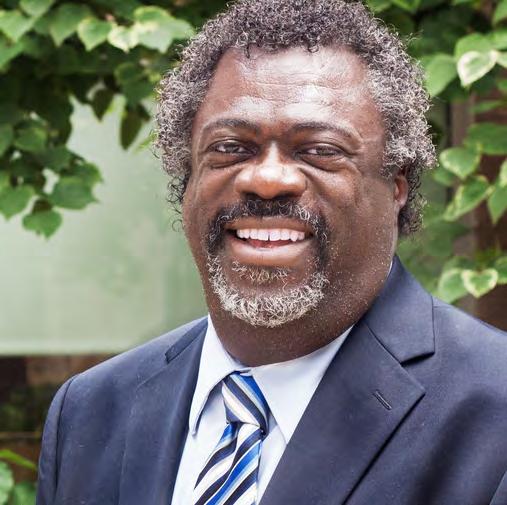
DIVERSITY,
Ernest J. Grant
PhD, DSc(h), RN, FAAN
Dr. Ernest J. Grant is the immediate past president of the American Nurses Association (ANA), the nation’s largest nurse’s organization representing the interests of 4.3 million registered nurses.
During his tenure as president, Dr. Grant worked closely with the federal government to ensure that nurses received the necessary education and equipment to provide care to those stricken by COVID-19 and advocated for resources for nurses to have their mental and physical needs addressed through the establishment of resiliency and well-being programs. Dr. Grant also spear-headed the Commission to Address Racism in Nursing in response to the inequities in health, healthcare and racism that were amplified by the pandemic.
Dr. Grant will bring his expertise as a global leader, advocate and commitment to diversity in the nursing workforce to support the Duke University School of Nursing Diversity, Equity and Inclusion endeavors. He has been tasked to develop initiatives that will enhance the experience of underrepresented and/or disadvantaged students enrolled in DUSON, and will design strategies and processes to integrate diversity and inclusion best practices within the School’s current organizational framework.
How do you see health inequities harming our country?
The cost associated with health disparities is staggering. Because there is a lack of access and other barriers that prevent individuals from getting the routine health care they need, growing numbers of people are using the emergency room or urgent care for primary care. This often means that an illness that could have been diagnosed and managed early is not detected and addressed until the individual may have a stroke or some other life-threatening event. That is catastrophic to the individual and also is driving up the cost of health care, especially in the ICU, rehabilitation and other settings. Health inequities also have an economic and social effect on the family that doesn’t always get calculated into health care cost but is something we as nurses see and can help mitigate.
How can nurses help patients overcome harmful social determinants of health?
Nurses are in a unique position to address and advance health equity. As agents of change, nurses are always thinking of and working toward improving conditions of inequities through their care, advocacy in the community, the socio-political process and being at the table where decisions that address health equity are made. And because of the enormous trust the public has for nurses because of our work, we have incredible opportunities to change minds resistant to or ambivalent about health equity. I think it is the responsibility of every nurse to advocate and do whatever he or she can do to advance health equity, whether that’s at the bedside, being a community leader, serving on boards or drawing the attention of policymakers. It is our responsibility as nurses to be agents of change.
“I am excited to bring to DUSON my health equity-focused research portfolio centered on understanding and addressing barriers to the highest attainable health for populations who experience health disparities along lines of race, gender, and sexual orientation. In addition to continuing and expanding my program of research, I look forward to mentoring nursing students by providing opportunities for them to engage with health equity research projects and build their skills in leading their own equity-focused projects.”

LGBTQ HEALTH EQUITY
Tonia Poteat
PhD, MPH, PA-C
For more than two decades, Dr. Poteat has successfully combined her practice, educational, and research expertise to address social determinants of health and improve health inequities.
Her research focuses on the intersectional and structural stigma that drives LGBTQ health disparities — in particular its impact on the health and well-being of transgender communities. She also conducts numerous trainings to enhance the advanced practice provider’s clinical and cultural competency in caring for transgender and gender diverse individuals. Dr. Poteat is a practicing Physician Assistant, prolific scholar, compassionate provider, inspiring speaker, and dedicated educator and mentor.
How do you approach health equity in your work?
Unfortunately, health inequities have persisted and, in some cases, increased over time in the U.S. These inequities are tied to historical and contemporary injustices and require a broad and lasting commitment to removing barriers to economic and social justice. In my work, I try to address health inequities by identifying and implementing health promoting interventions in partnership with affected communities. I’m excited to continue this work at DUSON because nursing education takes into consideration the whole person, with training that goes beyond biomedicine to consider broader social forces. Nurses bring an important perspective to health education, promotion, and policy that can increase the impact of health equity efforts and I look forward to contributing to that work.
Are you starting any new programs at DUSON?
I am particularly excited about a new study I will launch at DUSON called “CARES: Creating Access to Resources and Economic Support.” This research will test the ability of economic interventions, with or without peer support, to improve the mental health of transgender adults who experience material hardship. This study is being conducted in partnership with a national transgender-led organization, who will use the findings to guide their programming. Nurses are so well-positioned to make broad and substantial change to address the social drivers of health inequities, so I look forward to nurturing more programs like these to give them added tools for success.
“I strongly believe in the power of nursing to end health inequities. My goal in this work is to advance our knowledge of cardiovascular and brain health in diverse aging populations, develop and implement new patient-centered, evidence-based care that promotes health and well-being and reduces inequities, and provide a brighter future for millions of older adults around the world.”
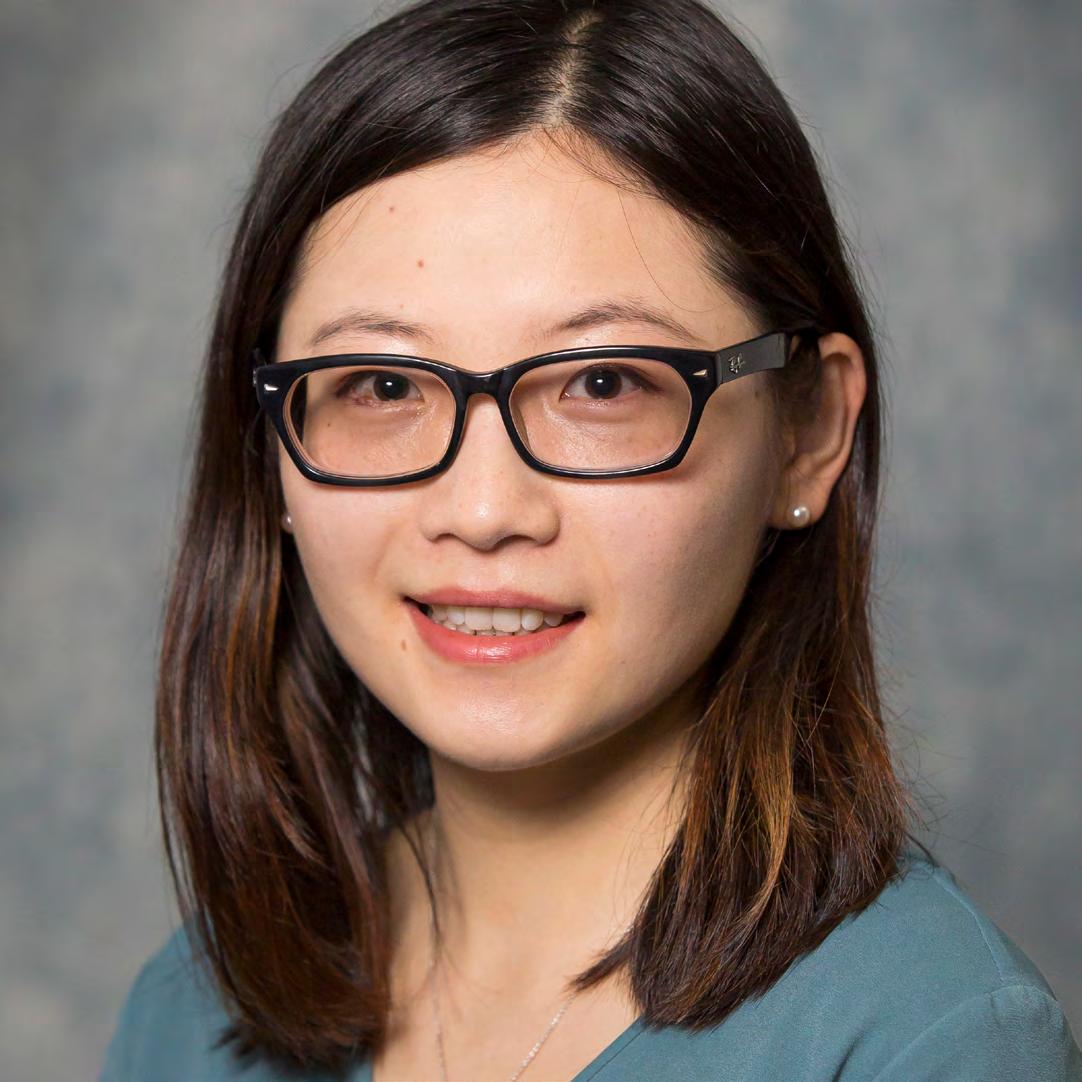
COGNITIVE AGING AND CARDIOVASCULAR CARE
Hanzhang Xu
PhD, RN
Dr. Xu is a geriatric nurse scientist and a health services researcher whose program of research falls under two themes: addressing health inequities in cognitive aging and dementia care delivery among older adults from a global perspective and integrating social determinants of heath in cardiovascular outcomes research.
Currently she is the Principal Investigator of several projects funded by the National Institutes of Health and the American Heart Association with a total award amount being over $1 million. Dr. Xu has received several awards and honors including the National Institute on Aging (NIA) AGING Initiative Multiple Chronic Conditions Scholar award, the American Heart Association Young Investigator Award, and the “Rising Star” Award from the American Geriatrics Society/NIH. She serves on the editorial board for multiple journals including the Journal of Aging and Health and Advances in Nursing Science. She also serves on an NIH Study Section as a grant reviewer.
What effects have you seen from health inequities in your field?
My work focuses on Alzheimer’s Disease Related Dementias (ADRD), one of the costliest conditions in the U.S. and globally. Inequities in ADRD and ADRD care delivery are widely documented. Some of these cost-related health inequities include human costs, financial costs, and societal costs. For example, prior research has found that Non-Hispanic Black and Hispanic older adults had a poorer cognitive function and more functional limitations than their White counterparts at the time when they received their dementia diagnoses. At the same time, NonHispanic Black and Hispanic older adults had much higher inpatient expenditures but much less uptake of advance care planning at the end of life than Non-Hispanic White older adults. In our field, we know that addressing ADRD requires not only a medical response, but that we also need to address the social impact of ADRD in our research, community outreach, and clinical practice. Addressing these health inequities is not only a moral imperative but also an economic and social necessity.
Please elaborate on how you think nurses can address social determinants of health.
Besides delivering highly skilled clinical care, nurses play critical roles in health education and research and are well-positioned to contribute to health promotion and prevention through community outreach programs, public health campaigns, and preventative health screenings. By identifying and addressing health inequities, nurses can work with multi-disciplinary teams to improve health outcomes in underserved communities. Equally important, we are seeing more and more nurses involved in developing and implementing health policies at the local, state, and national levels that address the conditions that cause health inequities.
Taking a New Direction to End Health Inequities
The human and economic costs of health inequities have risen to alarming levels, and these costs are unsustainable. At the Duke University School of Nursing, we believe new thinking and action are needed to ensure everyone has equal opportunity to achieve their optimal health.
A paradigm shift requires a new direction, so we have charted a course toward health equity that we invite you to follow.











